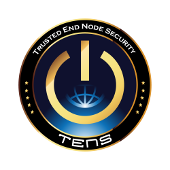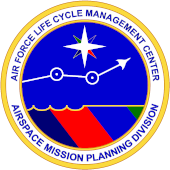AFLCMC Encryption Wizard
Encryption Wizard (EW) is a cross-platform file and folder encryption utility for the protection of sensitive information.
EW is simple, strong, Java-based file and folder encryption software for protection of sensitive information, such as FOUO, PII, CUI, and Privacy Act data. EW encrypts all file types for data-in-transit protection, and supplements data-at-rest protection. Without requiring a formal installation or elevated privileges, EW runs on Microsoft Windows, Mac OS X, Linux, Solaris, and many other operating systems. Behind its simple drag-and-drop interface, EW offers 128- or 256-bit AES encryption, several secure hashing algorithms, searchable metadata, encrypted archives with compression, secure file deletion (often called "scrubbing" or "shredding"), and PKI/CAC/PIV support.
AFLCMC and EW 4.x
The Air Force Life Cycle Management (AFLCMC) Mission Planning group has taken over management and funding of Encryption Wizard development. The most recent information, along with the latest 4.x downloads and support, is accessible to:
- CAC/PIV holders can access the program's Intellipedia page on Intelink, which has the latest list of downloads.
- MPC account holders
- SEIC CDE users with a DoD CAC and Nexus access
Downloads
To ease bandwidth requirements, only the previous Unified Edition (q.v.) is available for download from this site, and only in recent 3.x versions. AFLCMC has not yet arranged for a public-facing download site for 4.x, but planning is ongoing.
- Unified Edition v3.5.11, released 22 Feb 2022
- Unified Edition v3.5.10, released 19 May 2021
See the Release Notes and version history.
Editions and Requirements
Encryption Wizard was originally produced in multiple editions, described here along with a list of what is and is not required to use the software.
Encryption Wizard Software Contact
If you have questions, comments, or would like more information, the AFLCMC office can be reached at:
aflcmc.ewizard.outreach@us.af.mil
Plain text email works best. Please allow a few business days for a response. The previously-combined <TENS_Outreach> address is still in the Air Force's Global Directory listing, but is unmonitored.
What is this website?
Purpose of this specific website
The www.getTENS.online site was originally created by the TENS Program Office as an easily-available resource outside of .mil domains. Most of the original details are no longer pertinent, but the major issue was that many standard web browsers are missing crucial pieces of information (called "root certificates") necessary to verify that the previous primary website, www.tens.af.mil, was in fact the website that it claimed to be.
After DISA's budget was cut, the getTENS site was repurposed to allow users to continue to download the public-facing releases of the software, and to provide updates to the development status. Even though the TENS program has effectively ceased operations, the internet domain name remains.
The real site
As of this writing, there is no public-facing home for the technologies; if this changes, we will update this page to point to the new sites at that time.
The original site was spi.dod.mil from the days of the Software Protection Initiative. Many sites and official documentation still use that name. When the Software Protection Initiative program concluded, we became known as TENS (see the history below) and moved to tens.af.mil; the TENS Program Office was managed by the Air Force Research Laboratory's Information Directorate, of the United States Air Force. After DISA cancelled program funding, this website (getTENS.online) was repurposed to allow users to continue to download the public-facing software tools. The TENS website itself is no longer accessible.
TENS-Public History
Trusted End Node Security (TENS) creates a secure computing environment from trusted read-only media on almost any Intel-based computer.
TENS boots a thin Linux operating system from a CD or USB flash stick without mounting a local hard drive. Administrator privileges are not required; nothing is installed. Because the environment runs entirely without hard drives, nothing malicious already on a local drive can infect the running session, and nothing sensitive from the secure session can be left behind on a hard drive.
TENS was previously named Lightweight Portable Security, or LPS.
 The TENS Program Office was managed by the
Air Force Research Laboratory's
Information Directorate,
of the United States Air Force. Support and
active development of the TENS operating system was effectively halted in
2021. The software remains Government-owned.
The TENS Program Office was managed by the
Air Force Research Laboratory's
Information Directorate,
of the United States Air Force. Support and
active development of the TENS operating system was effectively halted in
2021. The software remains Government-owned.
Downloads
Given the absence of support funding and to ease bandwidth requirements, this site does not currently offer direct downloads of the TENS-Public and Public Deluxe images.
TENS Software Contact
The AFRL TENS Program Office address was TENS_Outreach@us.af.mil and is still listed in the Air Force's Global Directory listing, but is unmonitored by TENS Program Office personnel.
